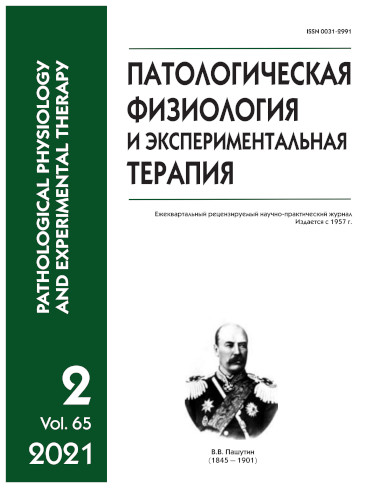Оценка результатов консервативного лечения функциональных расстройств дефекации у пациенток с пролапсом тазовых органов
DOI:
https://doi.org/10.25557/0031-2991.2021.02.44-52Ключевые слова:
биофидбэк терапия, тибиальная нейромодуляция, ректоцеле, расстройства дефекации, БОС-терапия, лечебная физкультураАннотация
Введение. В патогенезе расстройств дефекации у больных с ректоцеле могут участвовать как анатомические, так и функциональные нарушения. Однако до настоящего времени о возможности консервативной терапии, направленной на коррекцию функциональных расстройств дефекации, изучены недостаточно. Цель – изучение эффективности использования методов включающих БОС-терапию (терапия биологической обратной связью, biofeedback терапия) и тибиальной нейромодуляции в лечении больных с функциональными расстройствами дефекации на фоне пролапса тазовых органов. Методика. Материалом исследования служили результаты обследования пациенток в возрасте от 18 до 75 лет с наличием функционального расстройства дефекации (ФРД) в сочетании с ректоцеле без ранее проводившихся попыток хирургической коррекции. Проведены оценка общеклинических данных, опрос при помощи специализированного опросника выраженности расстройств эвакуаторной функции толстой кишки, рентгеновская дефектография, аноректальная манометрия высокого разрешения до и после комплекса консервативной реабилитации при помощи БОС-терапии и тибиальной нейромодуляции. Результаты. Конечному анализу были доступны данные 60 пациенток. Ректоцеле 1-й степени выявлено у 3 человек (5%), 2-й – у 37 (61,7%), 3-й степени – у 20 (33,3%) участниц исследования. Средний балл по симптомному опроснику составил 11,4±3,7. ФРД I типа выявлено у 41 (68,3%), II типа – у 6 (10%), III – у 10 (16,7%) и IV – у 3 (5%) участниц. После проведенной БОС-терапии признаки ФРД полностью устранены у 36,7% (22/60) женщин с ректоцеле. Неэффективной БОС-терапия оказалась у 11/41 (26,8 %) пациенток с I типом манометрического паттерна, 2/6 (33,3 %) со II типом и 4/10 (40,0 %) пациенток с III типом ФРД; (всего у 17/60 (28,3 %). У пациенток с IV типом паттерна неэффективные результаты лечения отсутствовали. Заключение. БОС-терапия и тибиальная нейромодуляция приводят к устранению симптомов в 36,7% случаев и положительной динамике у 35,0% больных. Методы могут быть рекомендованы к использованию в комплексной терапии эвакуаторных расстройств дефекации у больных с ректоцеле.Загрузки
Опубликован
30-06-2021
Выпуск
Раздел
Оригинальные исследования
Как цитировать
[1]
2021. Оценка результатов консервативного лечения функциональных расстройств дефекации у пациенток с пролапсом тазовых органов. Патологическая физиология и экспериментальная терапия. 65, 2 (Jun. 2021), 44–52. DOI:https://doi.org/10.25557/0031-2991.2021.02.44-52.










